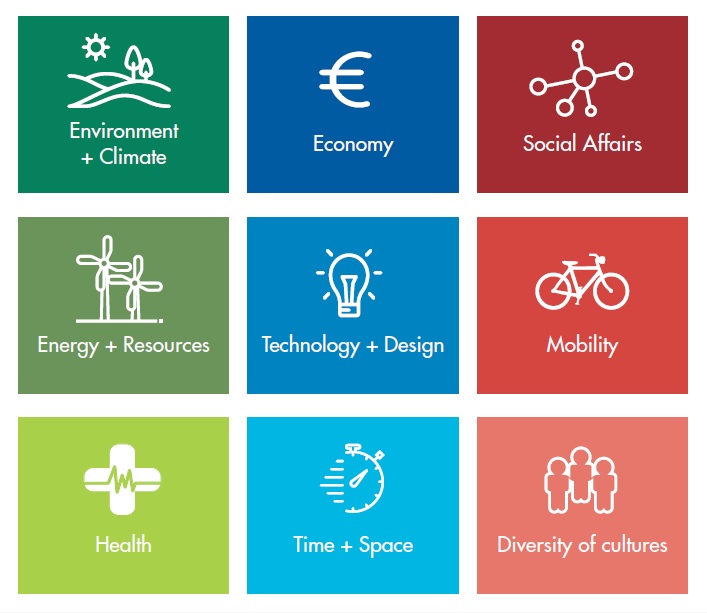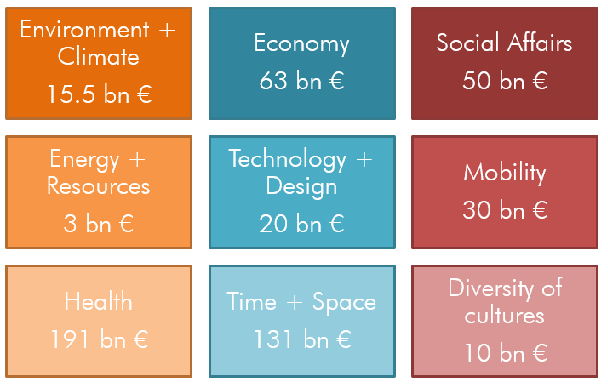
New ECF report shows: cycling creates 513 bn € annually
Every year, cycling in 28 EU Member States (MSs) creates economic benefits of 513 billion €, that is more than 1000€ per inhabitant! These findings were calculated in a new ‘EU Cycling Economy’ report by the European Cyclists’ Federation (ECF). The Report was presented on the 6th of December during ‘The Cycling Economy – Measure what you value’ event organized in Brussels.
Read the full report here
This report is ECF’s second calculation of the internal and external benefits of cycling linked to the current level of cycling in the EU-28. It is an extended and updated version of the first report published in 2013. The calculations have been updated with the latest available figures; in some cases, the methodologies for calculating the benefits have been refined taking into account the feedback received; and more benefits have been added in a systematic way. Summing up the calculated and estimated benefits of cycling in all these sectors, we arrive at the following aggregate figures:

The report demonstrates that the benefits of cycling occur not only in specific, isolated fields like transport or environmental policy, but in many other areas where the EU has competence as well, like industrial policy, employment, health and social policy. Benefits of cycling even extend to such societal areas as integration of refugees, access to mobility, employability, etc. ‘These findings once again prove that cycling pays a great contribution to the EU economy in general, at the same time contributing to many different policy fields, therefore, it is an interest of the EU to reap these benefits’ – commented ECF Advocacy Director Ádám Bodor. ‘In order to do that, we need a common EU Cycling Strategy that would integrate all the different policy fields. In addition, the Strategy could also increase the economic benefits in Europe, especially in those MSs where cycling modal share is now rather low’.
For Manfred Neun, ECF President and one of the authors of the study, the new report shows that cycling can play a significant role in achieving green growth in Europe: "Investing in cycling will help us to position our continent as a role model for sustainable development". Neun also stressed the importance of the Active Mobility Agenda, the theoretical framework behind the report: "This frame, which we developed together with our global academic community 'Scientists for Cycling' during the last years, has helped us to identify and classify the advantages of cycling in a way that makes the picture more complete than ever before and provides at the same time transparency for further research in the area".
The benefits of cycling could found to be even higher if more data were available. Holger Haubold, ECF Fiscal and Economic Policy Officer, the other author of the report said: ‘In some areas, we have identified benefits of cycling but we were not able to give any calculation or estimation yet. More qualitative and quantitative research is needed in those fields to quantify these benefits’. Therefore, the aim of the report is also to encourage further research on the subject in order to draw a more precise picture of the economic benefits of cycling in the future.
Regions:
Contact the author
Recent news!
Upcoming events
Contact Us
Avenue des Arts, 7-8
Postal address: Rue de la Charité, 22
1210 Brussels, Belgium









